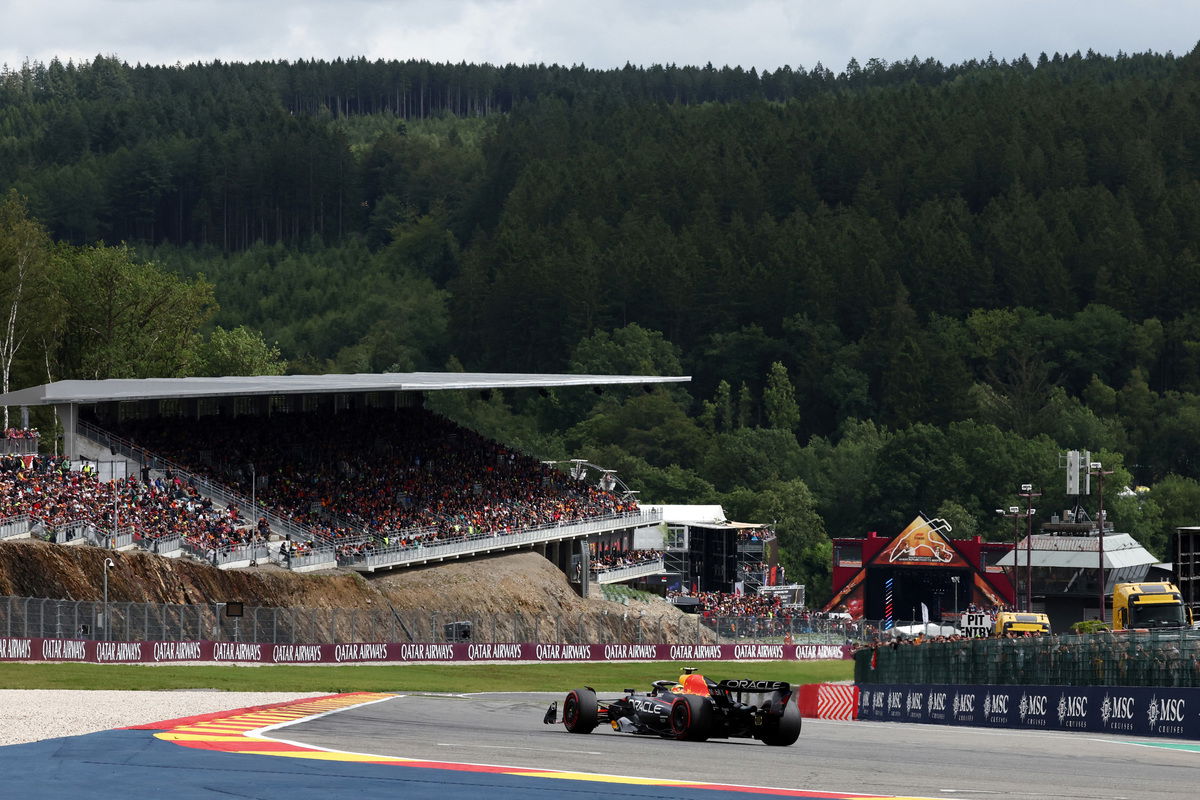
Last year’s Belgian Grand Prix attracted 380,000 fans across the three-day event at the famed Spa-Francorchamps circuit.
It was an event won by Lewis Hamilton who inherited top spot after team-mate George Russell was disqualified when his car was found underweight during post-race scrutineering.
The revelation that last year’s event posted a loss – which is yet to be fully calculated – was made by chair of the event, Melchior Wathelet.
Wathelet revealed the loss, first reported by the Brussels Times, at the Brussels Motor Show.
It’s expected that the event will post a loss of between €3 million and €3.5 million.
That follows on from a €2.3 million loss in 2023, with the increased loss a result of major investment and promotional campaigns.
However, it’s been suggested the figure could be even worse once public subsidies are taken into account, with sources claiming to Speedcafe that could take the figure as high as €8 million.
News of the loss comes shortly after it was announced the Belgian Grand Prix will remain on the calendar until 2027, beyond which it will appear every other year until 2031.
The Belgian Grand Prix has enjoyed one of the lowest hosting fees of any event on the calendar for some time.
Growing pressure from new events have essentially forced it out as F1 looks to cash in on the sport’s current popularity.
Thailand and Rwanada both have seemingly serious interest in events while there has been suggestions South Africa and even Argentina could make a return.
With the F1 calendar maxed out at 24-events, contractually there cannot be any more added, the only available option is to tighten up the current schedule.
That includes moving some events onto a rotational program, with Belgium the first confirmed to do so.
The intent is to reduce the number of low-paying events per annum while maintaining key European legs of the championship.
The organiser of the Belgian Grand Prix promotes only the F1 event, with other high-profile races at Spa-Francorchamps managed by SRO (24 Hours of Spa) or ACO’s commercial arm (6 Hours of Spa-Francorchamps).
As such, there is no means of amortising F1 losses across other events.
Instead, the promoter is gambling on the hope that, a year without an F1 race drives up interest which allows it to sell more tickets – and likely at a higher price.
The average price of tickets for the Belgian Grand Prix is around €400, or the equivalent of around 9000 additional fans across the weekend to bridge the shortfall in the 2024 earnings.
More likely however is a cost increase for tickets – an additional €10 per ticket (on average) would increase revenue by €3.8 million and cover the loss experienced in 2024.
Such a move would see the event remain around the middle of the pack in terms of event affordability.
It is likely, however, that the new contract due to start from 2026 increases the hosting fee payable to F1, complicating the event’s economics.

 Shop
Shop





























